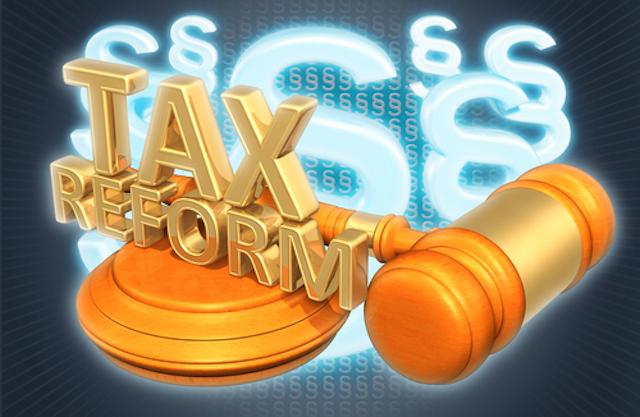What Actually IS the QBI Deduction?
The (Now Permanent!) 20% Tax Break for Business Owners and Real Estate Investors
Imagine if the government said, "Hey, we'll pretend that 20% of your business taxes don't exist when calculating your taxes." That's essentially what the QBI (Qualified Business Income) deduction does - it's government’s way of saying, "We want more people starting businesses and becoming entrepreneurs."
This powerful tax incentive isn't just for big corporations. It's designed specifically for real estate investors, small business owners, freelancers, consultants, and anyone brave enough to work for themselves.
Let's break this down in plain English.
The One-Sentence Explanation
The QBI deduction lets real estate investors and qualifying business owners deduct up to 20% of their business income from their taxable income, as an incentive for entrepreneurs and small business ownership.
Who Qualifies?
Almost any business structure can qualify:
- Real estate investors
- Sole proprietorships (Schedule C)
- Single-member LLCs
- Partnerships
- S-Corporation
Real Examples
Note: These are simplified examples for illustration. Actual tax calculations depend on many factors.
Example 1: The Corporate Executive Goes Independent
Sarah is a CFO at a large corporation earning $400,000 annually. She decides to leave and start her own fractional CFO business, serving multiple small companies. Here's what changes:
As a W-2 Employee:
- Salary: $400,000
- Federal tax (illustrative): ~$108,000
- Take-home: ~$292,000
As a Fractional CFO (S-Corp):
- Business income: $400,000
- QBI deduction: $80,000 (20%)
- Taxable income: $320,000
- Federal tax (illustrative): ~$78,000
- Potential tax savings: ~$30,000!
Example 2: The Real Estate Investor
Mike owns several rental properties:
- Net rental income for the year: $50,000
- Without QBI: Pay taxes on full $50,000
- With QBI: Deduct $10,000 (20%), only pay taxes on $40,000
- If Mike's in the 24% tax bracket: $2,400 in tax savings!
That's real money staying in your pocket instead of going to the IRS
The Safe Harbor Rule
The IRS created a "safe harbor" for real estate investors - if you meet these requirements, you automatically qualify:
- Separate Records: Keep separate books for each property
- 250 Hours: Spend 250+ hours per year on rental services
- Documentation: Keep records of all rental activities
What counts toward the 250 hours?
- Advertising for tenants
- Showing properties
- Negotiating leases
- Collecting rent
- Maintenance supervision
- Managing repairs
Income Limits Updated by OBBBA
Like many tax benefits, QBI has income limits:
- Full deduction if income under $394,600 (married) or $197,300 (single)
- Phase-out range now extends an extra $150,000 (married) or $75,000 (single)
- This means married couples can earn up to $544,600 before losing the deduction entirely
Real Estate Professional Status
If you're a "real estate professional" for tax purposes (spending 750+ hours annually and more than half your work time in real estate), your QBI benefits can be even better because your income limits don't apply the same way.
What This Means for You
Let's put this in perspective with different RE scenarios:
The Weekend Landlord:
- Owns 1-2 properties
- Spends 100 hours/year
- Might not qualify unless they increase involvement
The Growing Portfolio Owner:
- Owns 5+ properties
- Self-manages
- Easily hits 250 hours
- Likely qualifies for thousands in tax savings
The Real Estate Professional:
- Full-time in real estate
- Multiple properties
- Maximum QBI benefits
- Potentially huge tax savings
Maximizing Your QBI Deduction as a REI
Want to qualify or increase your deduction? Consider:
- Track Your Time: Document every hour spent on rental activities
- Self-Manage More: Take back some duties from property management
- Group Activities: Treat multiple properties as one business
- Stay Organized: Keep meticulous records
- Plan Income: Consider timing of income and expenses
Common Misconceptions
❌ "I need to be a full-time landlord" - No, 250 hours is about 5 hours per week
❌ "My property manager disqualifies me" - You can still qualify if you're actively involved
❌ "It's too complicated" - With good records, it's straightforward
✅ Reality: Many landlords already do enough to qualify - they just need to document it
The Secret Retirement Weapon
One of the biggest hidden benefits of self-employment is retirement savings:
Solo 401(k) Contribution Limits (2025):
- Employee contribution: Up to $23,500
- Plus catch-up: $7,500 if 50+ (or $11,250 if ages 60-63)
- Employer contribution: Up to 25% of compensation
- Total limit: $70,000 (or $77,500 if 50+)
SEP-IRA Alternative:
- Contribute up to 25% of net self-employment income
- Maximum: $70,000 for 2025
- Simpler to set up than Solo 401(k)
Compared to a Traditional Employee:
- Standard 401(k) limit: $23,500
- Maybe 3-6% employer match
- Total: Often under $30,000
That's potentially $40,000+ MORE in tax-deferred savings every year!
Making It Work: Business Structure Matters
Sole Proprietorship
- Simplest to start
- QBI on all profit
- Higher self-employment taxes
S-Corporation
- More complex but often worth it
- Can reduce self-employment taxes
- Split income between salary and distributions
- Still get QBI on profit distributions
Real Estate Special Rules
- Need 250+ hours annually in rental activities
- Or qualify as Real Estate Professional (750+ hours)
- Keep detailed time logs
The Entrepreneurship Incentive
The government is essentially saying: "We want more people to:
- Start businesses
- Create jobs
- Take entrepreneurial risks
- Build wealth independently"
And they're backing it up with serious tax incentives that are now permanent.
The Path to Taking Advantage of QBI
- Currently Employed?
- Calculate potential savings from going independent
- Consider fractional/consulting work in your field
- Talk to a tax professional about structure
- Already Self-Employed?
- Ensure you're tracking time and activities
- Consider if S-Corp election makes sense
- Maximize retirement contributions
- Real Estate Investor?
- Document your hours spent on properties
- Consider taking back some management duties
- Aim for that 250-hour threshold
- Side Hustler?
- Even small amounts qualify for the $400 minimum
- Keep good records from day one
- This could grow into something bigger
The Bottom Line
The Bottom Line
The QBI deduction is like a 20% off coupon for your rental income taxes. If you're actively involved in your rentals and keep good records, you likely qualify. For someone with $50,000 in rental income, that's $10,000 less taxable income - real money that compounds year after year.
The permanent QBI deduction makes the math compelling. That 20% deduction, plus massive retirement savings potential, can mean tens of thousands in tax savings annually.
For real estate investors, the difference between qualifying and not qualifying might just be better documentation of what you're already doing.
For those with an entrepreneurial spirit, the tax code is incentivizing you to take control of your financial future. The question isn't whether you CAN start a business - it's whether you can afford NOT to consider it.
Talk to a tax professional about your specific situation, but remember: every dollar saved in taxes is a dollar you can reinvest in growing your business or securing your retirement. The government is offering you a permanent 20% off coupon on business income - you should take it?






